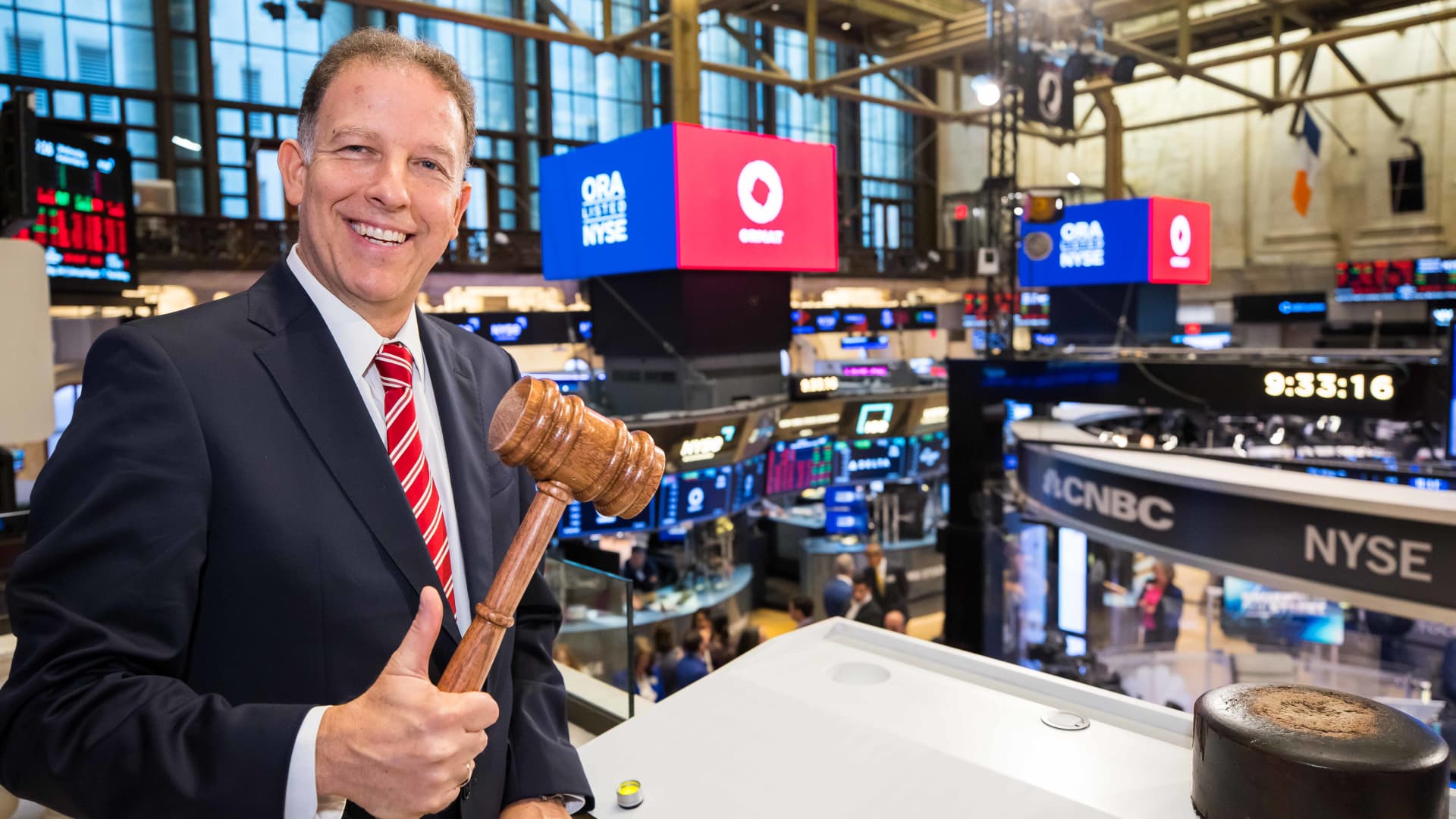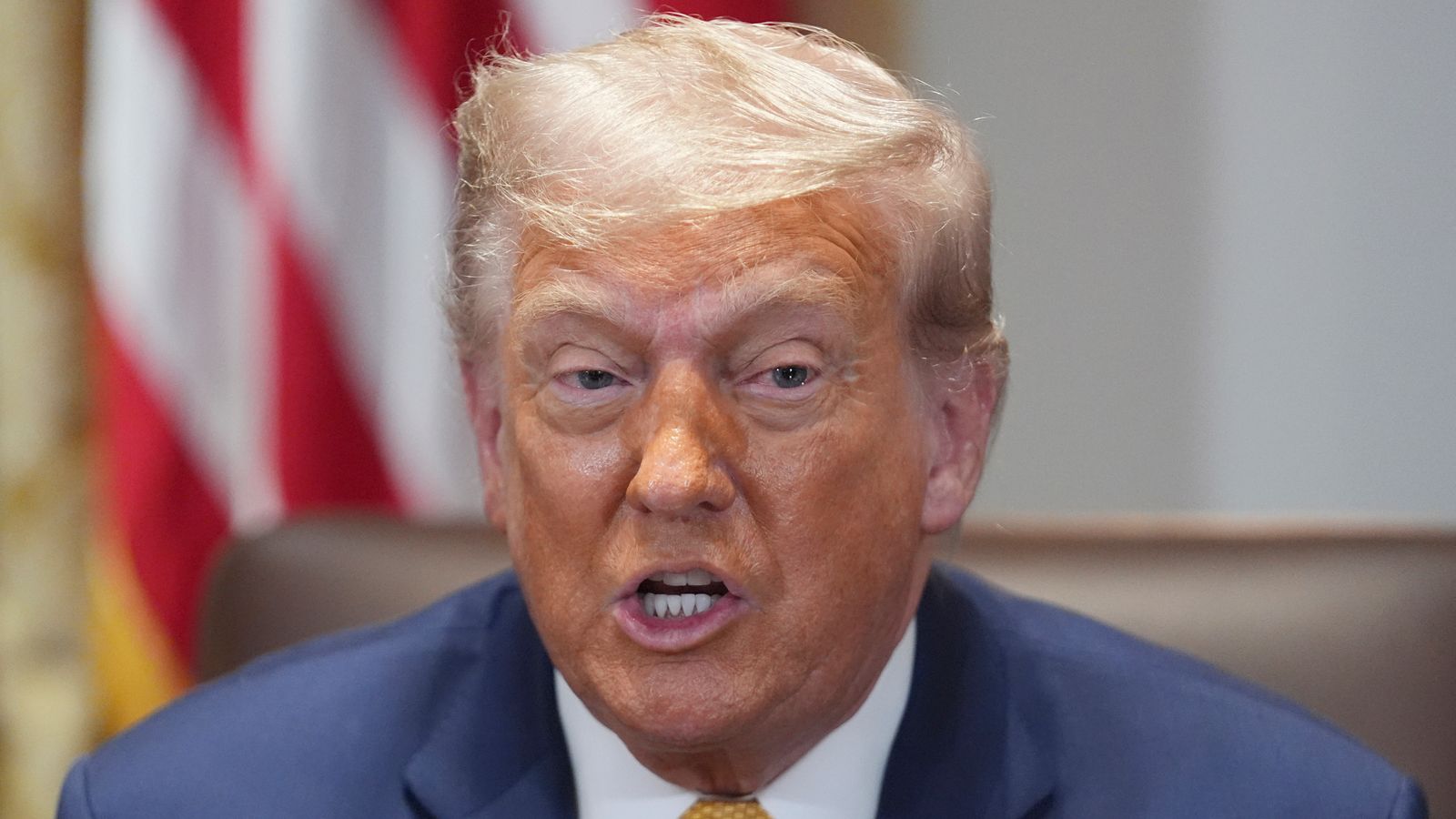The New York Stock Exchange welcomes executives and guests of Ormat Technologies, Inc. (NYSE: ORA), on Sept. 6, 2023, to celebrate entering its 20th year of trading on the NYSE.
This report is from today’s CNBC Daily Open, our new, international markets newsletter. CNBC Daily Open brings investors up to speed on everything they need to know, no matter where they are. Like what you see? You can subscribe here.
What you need to know today
Bracing for Fed meeting
U.S. stocks were little changed Monday as traders await the Federal Reserve’s September meeting. Asia-Pacific markets retreated Tuesday. Australia’s S&P/ASX 200 slipped around 0.4% as minutes from the RBA’s last meeting revealed the central bank thinks inflation is still “too high.” Meanwhile, Japan’s Nikkei 225 slumped 1.1%, leading losses in the region.
Rare returns
Early-stage investing in China hasn’t been lucrative. Only four U.S. dollar-denominated venture capital funds established between 2015 and 2020 have returned investors the money they put in, according to data from Preqin, a research firm. The four firms are: Fengshion Capital Investment Fund, LYFE Capital USD Fund II and GGV Capital V.
Top of the shelf
Instacart priced its initial public offering at $30 a share, the top end of its expected range. That gives the grocery delivery company a valuation of about $10 billion, a figure around 3.5 times its annual revenue. By comparison, DoorDash, a competitor, trades at 4.25 times. Instacart’s the first venture-backed tech startup to list since December 2021, and will signal the health of the IPO market.
Monthly payment for X
X, previously known as Twitter, will charge users “a small monthly payment” to combat “vast armies of bots,” Elon Musk said. Musk also divulged that X has 550 million “monthly users” who generate 100 million to 200 million posts per day. Separately, Turkish President Recep Erdogan invited Musk to build his next Tesla factory in Turkey, reported the country’s state media.
Extra pricey olive oil
Olive oil prices have surged to $8,900 a ton this month amid severe droughts in the Mediterranean. That’s over 100% higher than the year before — and far higher than the record of $6,242 set in 1996, according to the U.S. Department of Agriculture. And with extreme weather not abating and supplies depleting, prices might continue climbing.
[PRO] Oiling up real estate
Oil prices are currently more than $90 per barrel, and could rise further on the supply cuts by Saudi Arabia and Russia. It’s natural to expect energy and oil firms to reap the rewards from this. But, rather surprisingly, two global real estate stocks could also benefit from higher oil prices, said Morgan Stanley.
The bottom line
Stocks barely budged yesterday. All major indexes ticked up, but the gains were so tiny — measured in the hundredths of a percentage point — that it’s better to think of them as unchanged. Trading volume was muted, too. Both the SPDR S&P 500 and the Invesco QQQ, which tracks the Nasdaq 100, traded around 25% fewer shares than their 30-day average.
It’s not that investors aren’t sure about what the Fed might do at its meeting Wednesday. They’re all but certain the central bank will keep interest rates the same for now, according to the CME FedWatch Tool. It’s the November meeting investors are fretting over. Currently, markets think there’s a 28.7% chance of a hike — but that percentage has reached as high as 50.89% in late August (and was 31.3% just five hours ago!). Those wild swings reflect the uncertainty over the November meeting.
Still, Goldman Sachs thinks “the FOMC can forgo a final hike this year, as we think it ultimately will,” as the bank’s chief economist Jan Hatzius wrote in a Sunday note. But with the U.S. economy running hot, the labor market remaining tight — and roiled by strikes — and oil prices surging again, it’s no surprise the broader market doesn’t really know what inflation — and hence interest rates — will look like for the rest of the year.
Hence, the Fed’s dot plot, which charts where the central bankers think interest rates will be in the short- and long-term, will be closely scrutinized by investors. But Hatzius thinks even if members pencil in one more hike for the year, the Fed won’t actually pull the trigger. It’s “only to preserve flexibility for now,” he wrote.
Perhaps we should give the Fed some benefit of the doubt. Ed Yardeni, president of Yardeni Research, is certainly doing so. “Generally speaking, Fed watchers like to criticize the Fed and suggest that they’re always wrong about their forecast and what they are doing,” Yardeni said on CNBC’s “Squawk Box.”
“But I think they’re actually getting it right this time,” Yardeni said. “And I think we may very well have immaculate disinflation, where inflation comes down without an economy-wide recession.” This might be a brazenly optimistic prediction. But it’s an undeniably cheery thought — one of the few certainties to be had today.












